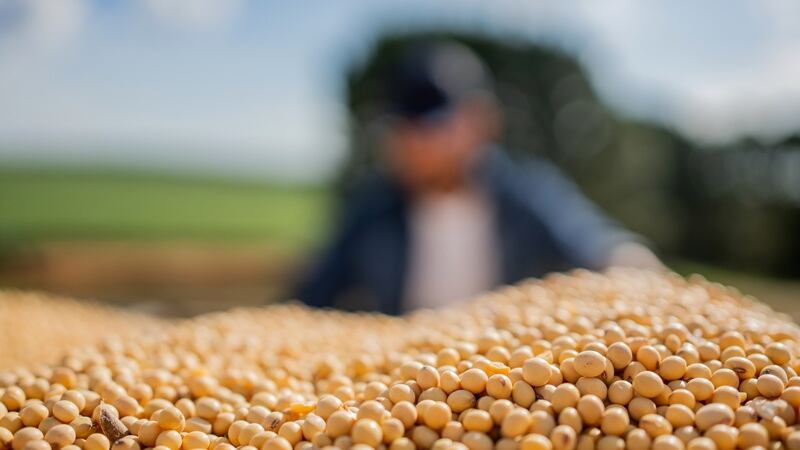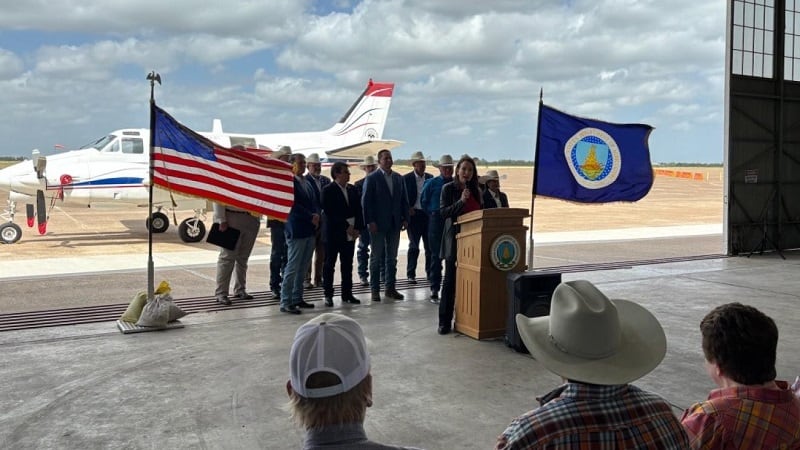The United States Department of Agriculture (USDA) is taking a three-step approach to support ranchers, but cattlemen came out strongly against Donald Trump’s plan to import more beef from Argentina in an effort to tame rising food prices.
Amid a government shutdown, the USDA released a 13-page report on Oct. 22, outlining the issues facing ranchers and proposing three broad steps to reinforce ranchers and the American beef industry. These include protecting and improving the business of ranching; expanding processing, consumer transparency, and market access; and building demand alongside domestic supply.
The report highlights numerous actions to improve ranchers’ livelihoods under each of these three objectives, including new standards for predator species, enforcing “Made in USA” label requirements, and more.
The USDA-DOI Grazing Action Plan is a key component of the plan and will bring together the USDA, the U.S. Forest Service, and the Bureau of Land Management to “streamline and expand grazing on federal lands, elevate grazing as an Administration priority, and provide direct relief and support to America’s ranchers,” the report stated.
“At USDA we are protecting our beef industry and incentivizing new ranchers to take up the noble vocation of ranching. Today, USDA will immediately expedite deregulatory reforms, boost processing capacity, including getting more locally raised beef into schools, and working across the government to fix longstanding common-sense barriers for ranchers like outdated grazing restrictions,” Brooke Rollins, USDA secretary, shared in a press release.
Cattlemen join soybean growers to call out support for Argentina
The plan was released after the President suggested the U.S. will import more beef from Argentina to help lower beef prices, as the AP reported.
Recently, Argentina received $20 billion from the U.S. in a currency swap deal, at the same time the Latin American country reduced its export taxes. Then, Argentina sold its soybeans to China, angering U.S. soybeans who lost market access to China, as AgTechNavigator previously reported.
Beef prices have been steadily on the rise due to a confluence of factors, including the re-emergence of the New World Screwworm disrupting the Mexican animal protein market. Last week, the consumer price index (a measure of consumer inflation) reported that at-home food inflation rose 3.1% in September, with uncooked beef roasts rising 4.8% in the month — the largest jump in four years.
“The National Cattlemen’s Beef Association and its members cannot stand behind the President while he undercuts the future of family farmers and ranchers by importing Argentinian beef in an attempt to influence prices. It is imperative that President Trump and Secretary of Agriculture Brooke Rollins let the cattle markets work.”
Colin Woodall, CEO of the National Cattlemen’s Beef Association
Trade groups, like the Ranchers Cattlemen Action Legal Fund United Stockgrowers of America (R-CALF USA) and the National Cattlemen’s Beef Association (NCBA), came out strongly against Trump’s suggestion of importing beef from Argentina.
“Market participants know that increased imports from Argentina will reduce demand for domestic cattle, and that’s why cattle markets have responded negatively to the president’s plan. And there couldn’t be a worse time for this to happen, as many producers are getting ready to sell this year’s production, meaning they will receive less for their cattle, and that will threaten their ability to remain economically viable, particularly as they face increased input costs in their operations,” Bill Bullard, CEO of R-CALF USA, said in a press release.
He added, “For decades, the government has been inviting more imports from countries such as Brazil, Argentina, and Namibia, claiming these increased imports would provide consumers more choices and lower consumer beef prices.”
Similarly, the NCBA CEO, Colin Woodall, came out strongly against the Argentina beef import plan, saying, “The National Cattlemen’s Beef Association and its members cannot stand behind the President while he undercuts the future of family farmers and ranchers by importing Argentinian beef in an attempt to influence prices. It is imperative that President Trump and Secretary of Agriculture Brooke Rollins let the cattle markets work.”
Trade groups respond favorably to grazing proposal
While many of these trade groups condemned the plan to import beef, they applauded the Trump administration’s three-pronged approach to reinforcing ranchers and the U.S. beef industry.
The United States Cattlemen’s Association commended the grazing plan and predator management change and gave USDA credit for highlighting “the important inclusion and enforcement of key existing tools in this plan — such as the recognition of protein’s role within federal dietary guidelines, meaningful support for small and independent processing facilities, and rigorous enforcement of voluntary labeling provisions,” as the organization shared in a press release.
R-CALF USA struck a similarly supportive tone.
“We greatly appreciate Secretary Rollins’ proposed reforms for the U.S. cattle industry. It’s the first comprehensive government plan issued in decades for the express purpose of revitalizing the domestic cattle industry, which has been shrinking at an alarming rate since the 80s,” Bullard shared in a press release.
He added, “Increasing grazing access on federally managed lands will increase our industry’s capacity to grow, and her plan to enforce the voluntary ‘Product of USA’ rule that goes into effect on Jan. 1 is an acknowledgement that differentiating USA beef from foreign beef is beneficial to U.S. ranchers and consumers.”





